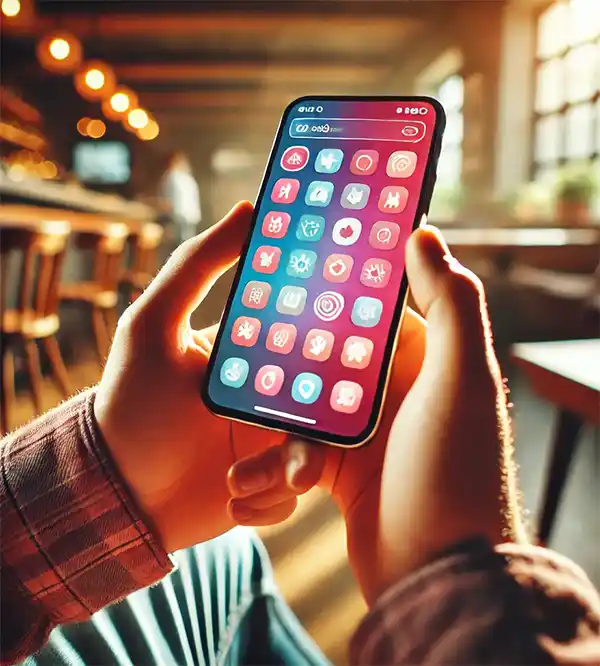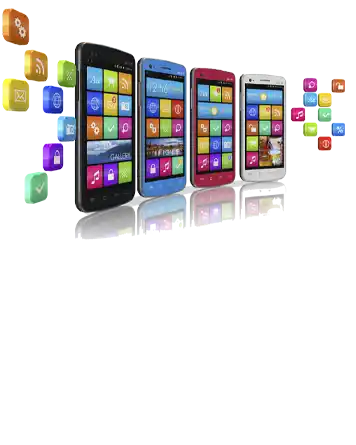Celebrating the Little Programs That Run Our Lives
Once upon a time, "app" was short for "appetizer," the biggest decision of the day was mozzarella sticks or jalapeño poppers. Today, “app” has a whole new meaning, and National App Day, celebrated annually on December 11, honors the digital wonders that have transformed our lives, from finding love to counting steps to reminding us to drink water.
A Brief History of Apps
The story of apps begins in the early 2000s, back when our cell phones were still more "talk" than "smart." The first apps were basic — think Snake on a Nokia. But in 2008, Apple opened the App Store, and the floodgates of innovation were unleashed. Suddenly, your phone was a mini-computer capable of navigating traffic, identifying stars, or ordering pizza with the touch of a button.
Since then, apps have become the Swiss Army knives of the digital age (minus the scissors that never work). Today, billions of apps exist, catering to every imaginable need. Want to learn Japanese? There’s an app for that. Need to simulate the sound of rain to fall asleep? There’s an app for that too. And if you’ve ever asked, “What if I could turn my face into a talking pineapple for a Zoom call?” Guess what — there’s probably an app for that as well.
 The Apps That Rule Our Lives
The Apps That Rule Our Lives
National App Day isn’t just about marveling at technology; it’s about recognizing the apps we can't live without. Some might say they’re a little too integrated into our lives. For example:
- Social Media Apps: Where else can you see your high school lab partner’s cat dressed as Santa while simultaneously watching strangers dance on TikTok?
- Productivity Apps: These promise to make us more efficient, though ironically, we often spend more time organizing our to-do lists than actually doing the tasks.
- Fitness Apps: Nothing says motivation like a notification reminding you that “You haven’t moved in three hours.”
- Food Delivery Apps: Why cook when you can summon burritos to your door like a modern-day wizard?
- Dating Apps: Swipe left, swipe right, and sometimes swipe up — the digital equivalent of a speed-dating buffet.
Fun App Facts
- The term "app" was named Word of the Year by the American Dialect Society in 2010. (And they didn’t even need an app to calculate that.)
- By 2024, the global app economy is expected to be worth over $935 billion. Clearly, there’s money in cat filter apps.
- On average, users spend about 4.8 hours per day on mobile apps. That’s roughly 20% of your life scrolling and tapping — let that sink in.
How to Celebrate National App Day
Celebrating National App Day is all about embracing the little digital marvels that simplify, entertain, and enhance our daily lives. Whether you’re an app enthusiast with a phone bursting at the seams or someone who only uses a handful of favorites, this day offers a chance to explore, appreciate, and maybe even rediscover the magic of apps. From trying out something new to giving your screen a much-needed spring cleaning, there’s no shortage of ways to join in the fun. So, grab your device, and let’s dive into the many ways to make the most of National App Day!
- Discover a New App
Download something you've never tried before. Maybe it’s a meditation app, a language-learning tool, or even one that teaches you to juggle flaming torches. The possibilities are endless!
- Declutter Your Digital Life
Be honest — you don’t need 47 weather apps. Use National App Day to Marie Kondo your phone and delete the ones you haven’t opened since 2019.
- Thank a Developer
Behind every app is a team of developers who’ve likely consumed an unhealthy amount of coffee to make it work. Send a kind tweet or leave a five-star review (even if the app only works 90% of the time).
- App-ify Your Day
Plan an entire day using apps. From waking up to a soothing alarm tone, to ordering breakfast, to navigating your morning run, to unwinding with a binge-watch session — see how much you rely on these digital gems.
Are Apps a Double-Edged Sword?
Apps have undoubtedly changed the way we interact with the world, but their convenience often comes with hidden costs. For starters, there’s the paradox of choice. With millions of apps available, finding the right one can feel like searching for a needle in a digital haystack. Download an app to help simplify your life, and before you know it, you’re drowning in a sea of updates, notifications, and subscription plans you don’t even remember signing up for.
Then there’s the issue of app dependency. What starts as a helpful tool can quickly become an emotional crutch. Have you ever tried to navigate somewhere without a GPS app, only to feel as lost as a tourist with a paper map? Or experienced the minor panic attack of a dead phone battery when you needed an app to show your boarding pass, find a restaurant, or even pay for parking? Apps have made us hyper-reliant on technology to a degree that can feel unsettling.
Data Privacy is another major concern. Every time you install an app, you’re agreeing to terms and conditions so long they could double as bedtime reading. While most users scroll past these agreements at lightning speed, hidden within them are permissions that often grant access to sensitive personal information. Your location, contacts, and even browsing habits are fair game for many apps. This has sparked growing unease about how much of our lives we’re handing over to faceless corporations, often without a second thought.
There’s also the question of digital fatigue. Apps are designed to grab and hold our attention with clever notifications, colorful icons, and gamified features. While this can make life more engaging, it also contributes to the constant pull to check our phones. Studies show that frequent app use can lead to shorter attention spans and a reduced ability to focus on tasks. Ironically, productivity apps may actually make us less productive when overused.
And then there’s the sneaky culprit of subscription creep. Many apps now operate on a “freemium” model, luring you in with free features and later charging for premium upgrades. Before you know it, you’re paying monthly fees for apps you barely use. Subscriptions to photo editors, fitness trackers, and even meal planners can add up, becoming a financial drain disguised as convenience.
Finally, consider the social implications of apps. While they connect us in ways never before possible, they can also isolate us. Messaging apps and social networks may bridge long-distance gaps, but they can’t replace the warmth of face-to-face interactions. It’s all too easy to scroll through a curated feed of someone else’s perfect life and feel disconnected from your own reality.
Despite their drawbacks, apps aren’t inherently bad. The key lies in mindful usage. By setting boundaries—like turning off non-essential notifications or limiting screen time—you can reclaim control over your app habits. Choose apps that genuinely improve your life, whether they enhance your health, help you learn, or foster real connections. And don’t forget to periodically review your app library. A little digital decluttering can go a long way in striking a healthy balance between convenience and chaos.
The Humor in App Life
Apps bring joy, sure, but they also bring the occasional laugh:
- Auto-correct has turned innocent texts into unintentionally hilarious ones.
- GPS apps have routed drivers into lakes because, apparently, "turn left" was interpreted a little too literally.
- Fitness apps guilt-trip us into walking an extra block, as if we’re auditioning for the Olympics.
But it’s all part of the charm, isn’t it? We’re navigating a tech-filled world, one tap at a time.
National App Day is a celebration of innovation, convenience, and the occasional technological mishap. Whether you’re a fan of apps that entertain, educate, or help you track your sleep cycles, there’s no denying their impact on modern life. So, fire up your phone, download something new, and thank the apps that make life easier (and occasionally more ridiculous). Just remember: even the best apps can’t fix a cracked phone screen.
Please Share our Content






 The Apps That Rule Our Lives
The Apps That Rule Our Lives








 "Sláinte!" is a traditional Irish expression used as a toast, equivalent to "Cheers!" in English.
"Sláinte!" is a traditional Irish expression used as a toast, equivalent to "Cheers!" in English.